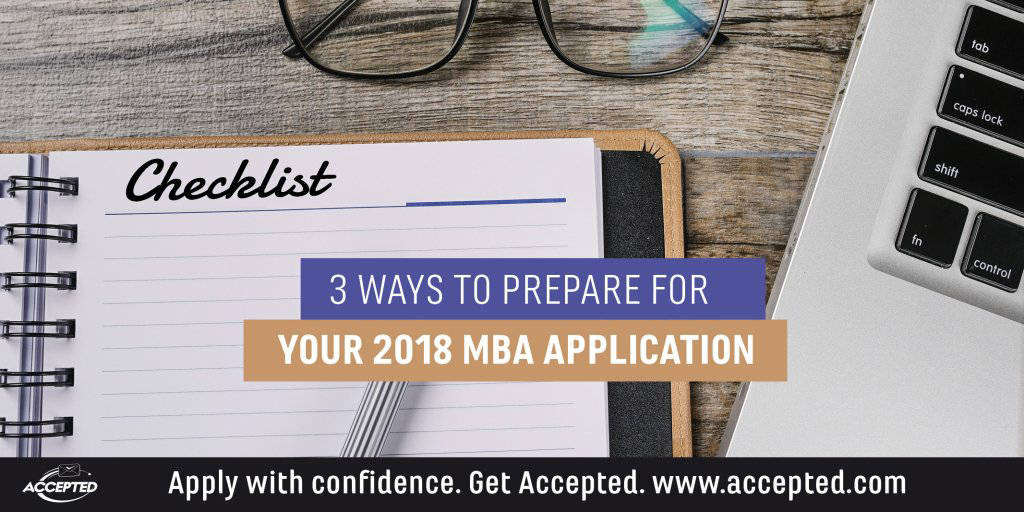
You can feel it in the air: the excitement of the just-published U.S. News and other business-school rankings, the proud chatter of accepted candidates on MBA forums worldwide, the articles speculating on just how many more people will apply to business school this year and how acceptance rates seem to be getting lower and lower. Whether you’re a first-time MBA applicant, a reapplicant (or re-reapplicant), or even if you haven't yet decided if you'll be applying this year, it’s time to start doing some deep thinking about your candidacy.
The sooner you start your MBA engines, the more successful your ride will be. Head to the starting line and with the following tips get ready…get set…and go!
1. Build your experience – now.
Yes, the GMAT is important. And yes, where you went to college is (somewhat less) important. But what truly distinguishes successful applicants from unsuccessful ones is this: their professional and extracurricular experience.
B-schools love to admit proactive candidates, and it’s never too late to volunteer for new experiences at work and in other roles. Is there a cool new initiative that requires as many hands as possible? Sign up for it. Are there opportunities to reach across functional lines, maybe to find new customers or reposition products and services? Go for it. It doesn’t even have to be within your current workplace. Especially for applicants without formal business experience, having something to say in this domain can go a long way to setting you apart. For example, maybe you have an IT/engineering background and have been involved in friends’ startups, advising them on tech strategy, operations, and other key components. Be creative – it’s a key skill for any aspiring MBA.
And this doesn't just apply to experiences in the workplace. It’s never too late to add to your outside-of-work experience too. You may not have time to establish a new non-profit, but you can certainly contribute your time to existing service efforts (they don’t seem to have quotas on volunteers!).
2. Clarify your goals.
If you're applying to business school, then you need to have goals. Ideally you’ll be able to lay out what you’d like to do immediately post-MBA and in the longer-term, and why.
Don’t be lazy on this point – “I’d like to be a management consultant and eventually an entrepreneur” is simply not specific enough.
Why are you interested in consulting? Maybe you’re already a tech consultant or love problem-solving in multiple domains. What firms would you like to work with? McKinsey, BCG, and Bain are the usual suspects, but think more broadly too. Are you big on operations? Then Booz Allen or A.T. Kearney may be great fits. Do you come from a healthcare background? Then ZS Associates may be worth mentioning. You’ll want to mention firms that recruit at the school in question.
For the long-term goal, you may not have to be quite as specific, but you should still try to paint a clear picture. If it’s entrepreneurship, why? Ideally you have some entrepreneurial experience already or can demonstrate your passion for the field in some other way. What type of business would you like to establish? Why? What trends suggest this is a “hot” area? Ask yourself these questions and work on developing concise, detailed answers.
3. Start thinking in stories.
Story is a highly powerful tool that’s too often overlooked in the business world and elsewhere. If the schools weren’t interested in your stories, then they would only look at your grades, GMAT, and resume.
But they want to know why you’re interested in an MBA and how you achieved what’s on your resume. They want to know what obstacles you faced at work and, sometimes, in your personal life. They want to know what lessons you learned.
Frankly, they want to know if you can tell a good (true) story; holding your audience’s attention is a critical skill, whether that audience is made up of classmates, professors, future colleagues, shareholders, boards, or Congress.
So think about what went into that great project management experience or consulting engagement or fundraising effort. What would be a good way to open the story? What were the obstacles you faced and how did you overcome them? What was the ending? Great stories aren’t just for novels or movies.
Do you need more help starting your MBA engine? Check out our 1-on-1 consulting & editing services to learn more about how we can help you get accepted.
Related Resources:
• MBA Action Plan: 6 Steps for the 6 Months Before You Apply, a free guide
• MBA Admissions: Does Extracurricular Equal Extra Credit?
• 4 Things To Do If You Can’t Define Your MBA Goals
This article originally appeared on blog.accepted.com.
Applying to a top b-school? The talented folks at Accepted have helped hundreds of applicants get accepted to their dream programs. Whether you are figuring out where to apply, writing your application essays, or prepping for your interviews, we are just a call (or click) away.
Contact us, and get matched up with the consultant who will help you get accepted!


